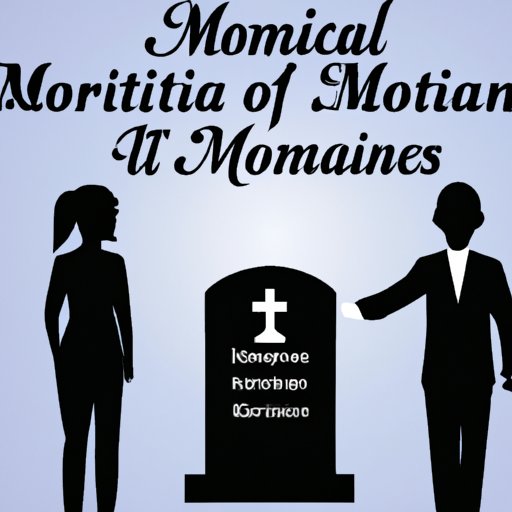Introduction
A mortician is a professional who is responsible for preparing bodies for burial or cremation. They also work with families of the deceased to arrange funerals, burials, and other services. Becoming a mortician requires specialized education and training, knowledge of laws and regulations, and strong people skills.
Educational and Licensing Requirements
To become a mortician, you must first complete an accredited program. Most morticians complete a two-year associate degree in mortuary science, which includes courses on anatomy, embalming techniques, funeral service operations, and grief counseling. Some states require additional training, such as a four-year bachelor’s degree in mortuary science or a one-year apprenticeship.
Once you have completed your educational requirements, you must obtain a license from the state in which you plan to practice. This typically involves passing a written exam and a practical exam. Each state has its own requirements, so be sure to check with your local board of morticians.

Typical Duties of a Mortician
Morticians are responsible for a variety of tasks, including preparing bodies for burial or cremation, dealing with paperwork and legalities, and working with funeral directors, family members, and other service providers. The exact duties of a mortician vary depending on the type of funeral home they work in, but some of the most common tasks include:
- Preparing bodies for burial by washing, dressing, and embalming them
- Arranging for transportation of the body to the cemetery
- Assisting with funeral services, including arranging flowers, providing music, and preparing obituaries
- Dealing with legal issues, such as death certificates and wills
- Providing emotional support to grieving families
Necessary People Skills
In addition to having the necessary education and training, it is important for a mortician to have good communication and people skills. As a mortician, you will be working closely with grieving families, and it is important to be able to handle difficult conversations with compassion and understanding.
“It’s important to be a good listener,” says Mary Johnson, a licensed mortician in Illinois. “You need to be able to understand what the family is going through and provide them with the support they need during this difficult time.”
Day-to-Day Operations of a Funeral Home
Understanding the different roles within a funeral home is key to being successful as a mortician. A funeral home typically consists of several staff members, including a funeral director, a mortician, and administrative staff. The funeral director oversees the day-to-day operations of the business, while the mortician is responsible for preparing bodies for burial and assisting with funeral services.
Challenges and Rewards of Being a Mortician
Being a mortician can be both challenging and rewarding. On the one hand, the job can be emotionally draining, as it involves working with grieving families on a daily basis. On the other hand, it can also be incredibly rewarding, as you are helping families during a difficult time in their lives.
“I love my job because I get to help families during one of the most difficult times in their lives,” says Johnson. “It’s incredibly rewarding to be able to give families the closure they need to move forward.”
Conclusion
Becoming a mortician requires specialized education, licensing, and people skills. It is a challenging yet rewarding job, as you are helping families during a difficult time in their lives. If you have the necessary qualifications and people skills, then a career as a mortician may be right for you.
(Note: Is this article not meeting your expectations? Do you have knowledge or insights to share? Unlock new opportunities and expand your reach by joining our authors team. Click Registration to join us and share your expertise with our readers.)
